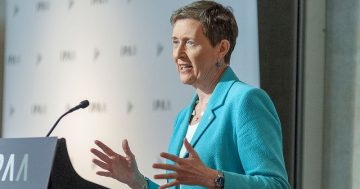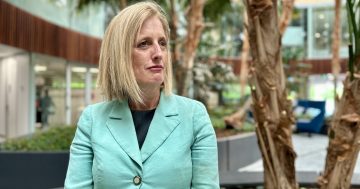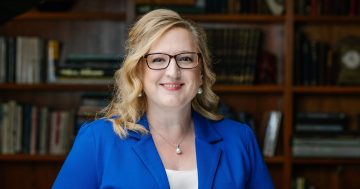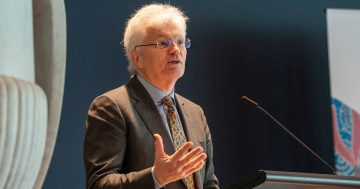
Neurodiversity should be more widely ingrained across the APS. Photo: Aiden Rothnie.
“We’re all on the spectrum,” someone once said, and it’s a mantra that is often repeated.
What that actually means is up for debate, but when it comes to employment in the public sector, neurodiversity should be so ingrained that it’s unremarkable.
“Accessibility by default,” was the key message senior staff from the Department of Prime Minister and Cabinet’s diversity and inclusion team recently delivered to public servants.
During a podcast facilitated by the Institute of Public Administration Australia, PM&C’s Robin Edmonds, Andrew Pfeiffer and Lee Steel said many challenges remain for neurodivergent staff in the Australian Public Service.
They said there is no one-size-fits-all approach to tackling these issues, but progress is being made and de-stigmatisation must be further embraced.
“The biggest barrier at the moment to getting support for a lot of people is that they’re really scared about the stigma around coming out as neurodivergent or as disabled, if they identify that way, and how their manager’s going to respond,” Ms Edmonds said.
“When you’ve met one neurodivergent person, you’ve met one neurodivergent person, and that’s never truer than when you’re trying to organise a good environment for them in the workplace.
“For every individual, the layers of diversity and experiences form a complex shading or colour that gives you their intersectionality.
“So you might have additional challenges if you are neurodivergent and you are also a woman, or maybe you’re a younger manager and you’re trying to really sort of establish yourself in the workplace.”
The trio suggested a five-year timeframe where, by 2028, accessibility for autistic and other neurodivergent staff was the default position.
In today’s APS, the demand for IT staff is high. That is an area in which many neurodiverse people are exceptionally good, but it can also be seen as limiting for their careers as there is no clear pathway for advancement from IT to management.
“I’d like to see a more capable APS that reflects the public we serve, including more representation of neurodivergent people at senior levels,” Ms Steel said.
“But also managers and senior leaders who model inclusive behaviours.
“This need is to be enabled by a stronger focus on outcomes and impact rather than discrete behaviours and styles.”
The panel said there were clear ways in which inclusiveness can be adopted, starting right from the time of recruitment.
In the five-years-from-now scenario, the APS would be a very different place.
“I think we can see in 2028 recruitment processes that actually test a candidate’s aptitude for the job,” Mr Pfeiffer said.
“Recruitment processes that don’t massively overvalue the ability of candidates to write job applications in a very specific way, or to answer interview questions in a very specific way.”
Just because someone’s not giving you eye contact doesn’t mean they’re not a good fit for a particular position.
“Many neurodivergent people struggle to give eye contact, myself included,” said Pfeiffer, who has autism.
“And I think one of the things that we could very easily do is make it the default to give candidates the interview questions a short time before the interview so that that way they’ve got something to prepare from … There’s a phrase that I really love, and it says, ‘nothing about us, without us’.
“One of the great things that managers can do is listen to neurodivergent employees and to learn from us.”
The podcast was IPAA’s first Work with Purpose instalment for 2023.





















